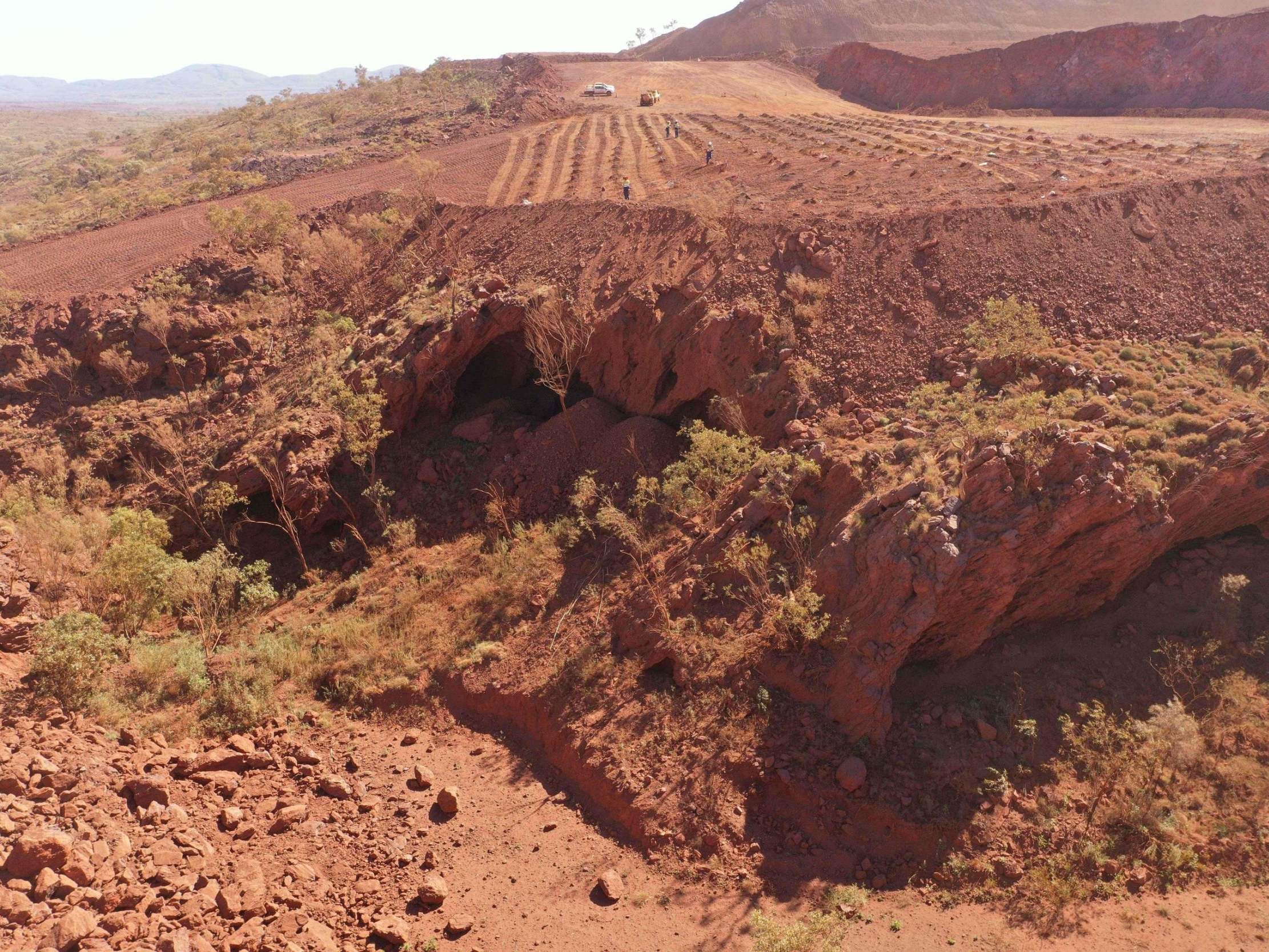Rio Tinto chairman steps down 10 months after company blew up 46,000-year-old Aboriginal caves
2020 demolition went ahead despite seven year battle to protect the site

Ten months after mining giant Rio Tinto was forced to apologise after blowing up sacred Aboriginal caves in Australia, which had been inhabited by humans as long ago as 46,000 years, the company’s chairman has said he will step down.
Following investor pressure, Simon Thompson who has led the company’s board since 2018, said the company’s financial success had been “overshadowed by the destruction of the Juukan Gorge rock shelters” and said he was “ultimately accountable for the failings that led to this tragic event”.
The Juukan Gorge cave systems, in the north of Western Australia, were an Aboriginal heritage site, and the only inland site in Australia to show evidence of continual human occupation through the last Ice Age. Numerous ancient artefacts have been recovered there.
But the Juukan Gorge caves were also on the site of Rio Tinto’s Brockman 4 iron ore mine, containing eight million tonnes of high-grade iron ore with an estimated value of £75m.
Despite a seven-year battle to protect the site by the local custodians of the land, the Puutu Kunti Kurrama and Pinikura People (PKKP), the demolition went ahead on 24 May 2020.
Last September, the firm sought to address outrage over the demolition of the caves and said chief executive, Jean-Sébastien Jacques, along with two other senior executives were to be removed from their positions.
“Significant stakeholders have expressed concerns about executive accountability for the failings identified,” the company said last year.
But after the announcement, Mr Thompson has faced mounting criticism over the amount of time it was taking for Mr Jacques to exit the company.
In January 2021, the firm appointed Jakob Stausholm as its new chief executive.
In his statement, Mr Thompson said: “Throughout my seven years on the Rio Tinto Board, I have endeavoured to promote a progressive environmental, social and governance agenda. While I am pleased with the progress we have made in many areas, the tragic events at Juukan Gorge are a source of personal sadness and deep regret, as well as being a clear breach of our values as a company.”
A scathing parliamentary inquiry into the caves’ demolition in December 2020 described the decision to blow up the site as “inexcusable”.
“Rio knew the value of what they were destroying but blew it up anyway,” the inquiry report said.
It also called for the Western Australian government to enforce a moratorium halting the destruction of any other Aboriginal heritage sites until new laws are passed.
The company is one of the world’s largest mining organisations, and last month it reported a 20 per cent rise in underlying profit to $12.4bn (£8.9bn), which it said was due to increased demand for iron ore in China - where it is used by the steel industry - as the country’s economy rebounded after the impacts of Covid-19.
But the loss of the caves sparked international outcry and a pledge by Australia’s federal government to review the relevant laws.
The mining giant was first granted approval for work at the Brockman 4 iron ore project in 2013, but archaeological excavation in 2014 recovered around 7,000 ancient artefacts including grinding stones, a bone sharpened into a tool and a 4,000-year-old braided hair belt, analysis of which revealed a direct genetic link between the PKKP today, and the prehistoric cave-dwelling population.
The demolition went ahead with all the necessary approvals in place, despite the archaeological finds indicating the site was even more significant than previously thought.
Michael L’Estrange, a non-executive director, will also step down from the board, the company said.
“It has been an honour to have had the opportunity to serve on the Rio Tinto Board for what will be six and a half years. I wish Jakob and the new executive well for the future as they build on Rio Tinto’s many strengths and continue to implement the critical changes aimed at ensuring that an occurrence such as the destruction of the Juukan Gorge rock shelters never happens again.”
Subscribe to Independent Premium to bookmark this article
Want to bookmark your favourite articles and stories to read or reference later? Start your Independent Premium subscription today.

Join our commenting forum
Join thought-provoking conversations, follow other Independent readers and see their replies